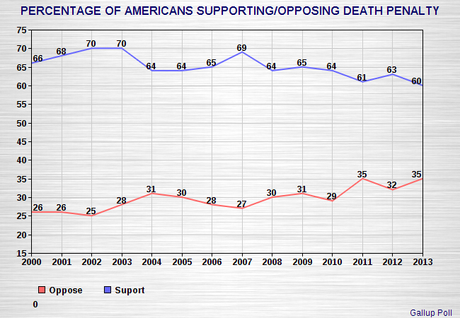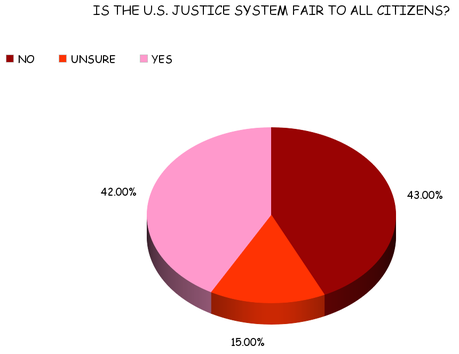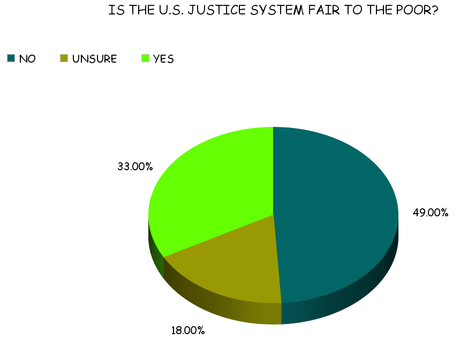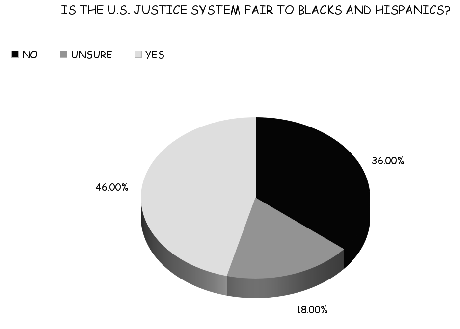
California has 748 inmates on Death Row, but has not executed anyone since 2006 (8 years) -- even though about 40% of those inmates have been on Death Row for at least 19 years. Because of this, a federal judge in California (Judge Cormac J. Carney, a George W. Bush appointee) declared the death penalty in that state unconstitutional. He said it violated the Eighth Amendment's prohibition against cruel and unusual punishment, and said, "no rational jury or legislature could ever impose: life in prison, with the remote possibility of death".
I can understand the judge's ruling, but it does seem to fly in the face of the state's desire to make sure of guilt and a fair trial before executing anyone. That probably doesn't really end the death penalty in that state though. I expect the decision to be appealed, and if an appeals court doesn't overturn the decision, the current conservative-leaning Supreme Court undoubtably will do so.
But this does put the death penalty back on the front pages -- and it makes me wonder why Americans have a split personality on the death penalty and the justice system. As the chart above shows, A significant majority of Americans support the death penalty (about 60%). That's slightly down, but still about twice the number who oppose it -- and it has been that way through the first 14 years of this century.
Although I am basically against the death penalty as a punishment, I could understand the public's stand -- if the public was sure that the justice system in this country was fair to all citizens. But that's not what the public believes. Note the charts below.
Americans are split on whether the system of justice in the United States is fair or not. While 42% say it is fair, another 43% say it is not (and 15% don't know if it is fair or not). That means that 58% say the system of justice is not fair or have doubts as to that fairness. And those numbers are even worse when people are asked if the system is fair for the poor. Only 33% say it is fair, while 67% believe it is either not fair (49%) or have doubts as to its fairness (18%) for the poor. The we have the racial and ethnic judgment of the system -- where 46% say it is fair and 54% have serious doubts about that.
Frankly, these are shocking numbers. How can 67% believe the justice system may not be fair to poor citizens, but 60% are still in favor of administering the death penalty? Shouldn't those two beliefs be mutually exclusive? If only 33% are convinced the justice system is fair to the poor, but 60% support the death penalty anyway -- doesn't that mean about 27% of Americans support the death penalty even though they think the poor don't get a fair shake in our courts? How can that be? is a quarter of our population really so bloodthirsty that they would execute people without believing they got a fair trial?
What kind of nation does that make us?



The Gallup Poll at the top of this page was done between October 3rd and 6th of 2013.
The Rasmussen Poll (the three bottom pie charts) was done on March 20th and 21st of 2013 of 1,000 likely voters, and has a 2 point margin of error.

